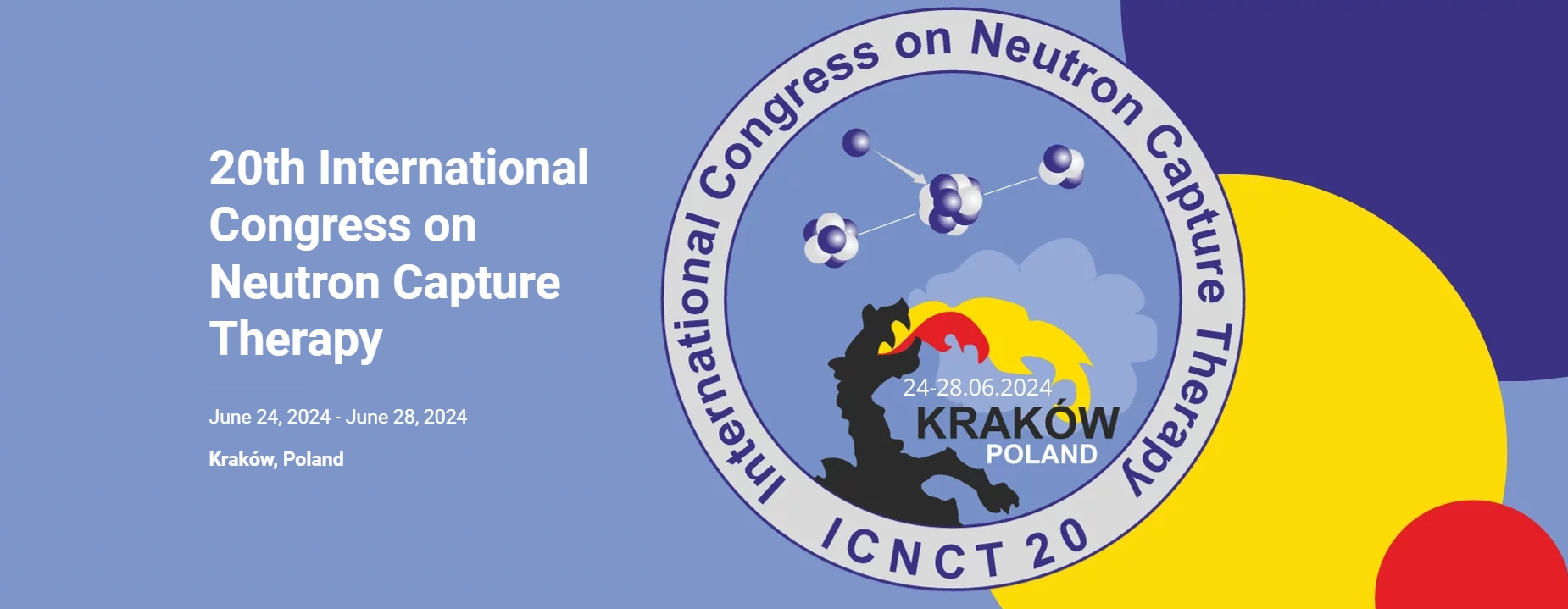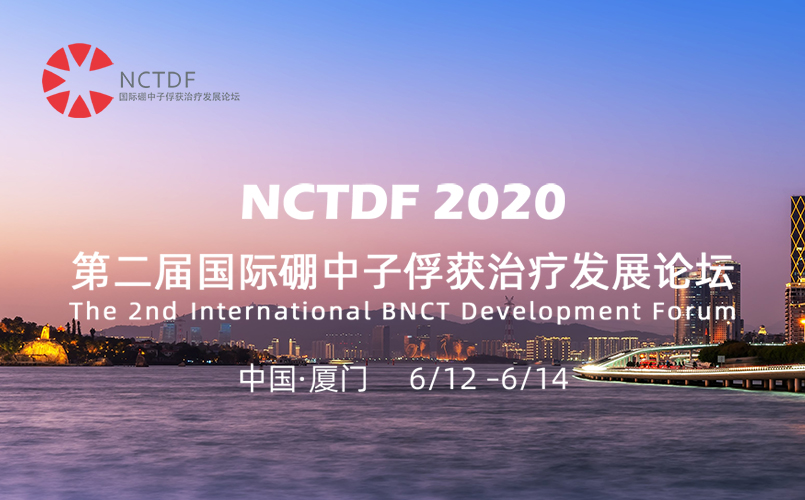Recently, the 20th International Congress on Neutron Capture Therapy (ICNCT), the world's largest and most influential academic event in the field of boron neutron capture therapy, grandly kicked off in Krakow, an ancient city in Poland. Neuboron has supported ICNCT for consecutive sessions and was invited to attend the conference. It gathered with experts from the global BNCT field to jointly discuss the future development of BNCT.
At this congress, Neuboron delivered seven wonderful academic reports, including an invited report. These reports focused on cutting-edge innovations and clinical progress of BNCT, attracting high praise and widespread attention from experts and scholars at home and abroad.
Furthermore, exciting news came from this congress: the Chinese organizing team represented by Professor Liu Yuanhao from Neuboron applied for the right to host the 22nd ICNCT at the board meeting of the International Society for Neutron Capture Therapy (ISNCT). It stood out from the fierce competition among countries such as China, Japan, South Korea, and Singapore, and successfully won the right to host the congress.

In the invited lecture of the congress, Professor Liu Yuanhao, Chief Scientist of Neuboron, introduced the overview of Xiamen Humanity Hospital BNCT Center - China's first BNCT clinical demonstration base - as well as Neuboron's one-stop BNCT solutions.

When designing Xiamen BNCT Center, five key factors - "safety, environmental friendliness, ease of maintenance, cost-effectiveness, and high turnover rate" - were fully taken into account. Through Neuboron's world-leading accelerator-based BNCT system equipment, treatment planning system, dose monitoring, radiation protection, and other products and solutions, the center can not only provide high-quality neutron beams but also ensure environmental friendliness and high safety. Moreover, it is easier to operate and maintain in clinical applications, greatly improving the accessibility of BNCT technology.
From October 2022 to June 2024, the center has completed irradiation treatment for 24 patients using Neuboron's BNCT system NeuPEX. Currently, the IIT-002 study focusing on the treatment of head and neck cancer and glioblastoma is in progress, and 5 patients have been enrolled. Another important study, IIT-003, which aims to explore the treatment of advanced extrapelvic solid tumors, has been approved to conduct a basket study and compare the effectiveness of different treatment methods, including the analysis of LAT-1 expression and 18F-BPA TBR. In addition, in April 2024, the center launched China's first accelerator-based BNCT registered clinical study (IND), and completed the enrollment of the first patient in May.
At this congress, young talents of Neuboron delivered a number of important reports on neutron beam design, patient positioning, radiation safety, dose calculation, and other aspects.
In terms of the treatment planning system, Dr. Teng Yichiao focused on the optimization of image fusion. She introduced the application of hypofractionated heterogeneous boron distribution in dose calculation of regions of interest, which reduces the partial volume effect of image fusion and reflects the clinical evaluation significance of individual differences.
Dr. Chen Jiang combined Neuboron's BNCT-specific treatment planning system NeuMANTA with surface tracking technology, and designed a new automatic patient positioning algorithm for BNCT treatment, further improving the positioning accuracy and efficiency.
Zhong Wanbing introduced the new-generation BNCT dose calculation program COMPASS-GPU. By using GPU acceleration technology, it significantly improves the speed of dose calculation based on the continuous energy Monte Carlo method while maintaining calculation accuracy, further meeting clinical needs and supporting the large-scale application of BNCT treatment.
Dr. Shu Diyun delivered a report titled "Preliminary Exploration of 2D Reaction Rate Measurement Method based on Indirect Neutron Radiography in BNCT". Based on the indirect neutron radiography method, an improved 2D reaction rate measurement method for activated detectors was obtained, and its accuracy was initially verified by the traditional neutron activation analysis method. This method can be used for BNCT neutron beam characterization and verification, and is expected to effectively improve the efficiency and comprehensiveness of neutron beam characteristic measurement in the future.
Liu Xingyan shared the performance evaluation results of the neutron monitoring system at Xiamen BNCT Center. As a core component of NeuPEX, the neutron monitoring system is crucial for ensuring the accuracy of treatment doses. After a comprehensive performance evaluation, the neutron monitoring system demonstrated excellent performance, verifying its applicability and reliability in clinical research combined with the NeuPEX system.
Radiation safety measures provide necessary guarantees for BNCT dose monitoring. Meng Caifeng gave a detailed introduction to the radiation safety situation of Xiamen BNCT Center from aspects such as radiation levels in supervised areas, radiation levels in the treatment room after irradiation, and replacement and storage of neutron conversion targets. Through comprehensive measurement and evaluation, the results show that the radiation safety measures of Xiamen BNCT Center can effectively ensure the safety of staff.
The wonderful appearance of Neuboron's core technologies and solutions at the congress attracted widespread attention and high recognition from experts and scholars. The lively on-site discussions not only demonstrated its leading strength in the industry but also reflected China's medical and technological achievements and broad potential.
At this congress, China's international influence continued to rise significantly. It has become the second-largest country in the global BNCT development field after Japan and maintains a strong momentum of rapid development. At the same time, Professor Liu Yuanhao from China was re-elected as an Executive Member of the International Society for Neutron Capture Therapy (ISNCT). In addition, Researcher Zhang Zizhu from Beijing Nuclear Industry Hospital was appointed as one of the ten newly elected directors of the society.
Winning the right to host ICNCT-22, more and more Chinese experts joining the International Society for Neutron Capture Therapy, and the continuous growth of China's BNCT research teams... These achievements all demonstrate the increasing influence of China's BNCT and mark that China occupies an increasingly important position in the BNCT field. We are full of expectations that in the near future, through careful preparation and efficient organization, ICNCT-22 will become an important platform for displaying the latest global BNCT research results, promoting international exchanges and cooperation, and further promoting the innovation and development of global BNCT technology.



